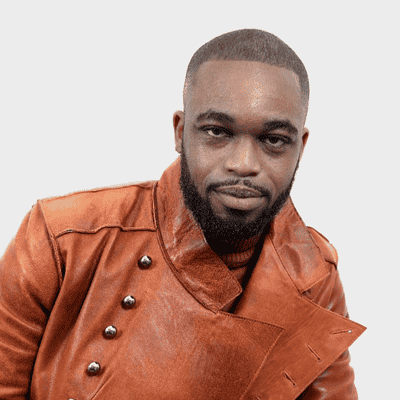In the vast, interconnected tapestry of the 21st century, a paradox emerges: never before have we had so many platforms for expression, yet never before has the individual voice felt so susceptible to being drowned out. We live in what can only be described as a deconstructed world—a landscape where traditional narratives are unraveling, information bombards us from every angle, and the very foundations of identity are constantly being reshaped. This omnipresent “noise,” whether from social media algorithms, 24/7 news cycles, or the relentless pressure of societal expectations, often leaves us feeling fragmented, disoriented, and disconnected from our true selves.
For acclaimed author and philosopher Jesse Yaw, whose groundbreaking novel, The Deconstruction of Humanity’s Voice, But We Are Still Standing, directly confronts these very challenges, understanding this phenomenon is not just academic; it’s fundamental to our existence. His work passionately advocates for the re-education of the human mind, believing it central to true emancipation and the reclamation of an unaltered truth. But how do we begin this re-education amidst the cacophony? How do we locate and amplify that authentic voice when the world around us seems intent on dictating what it should sound like? This article will explore the nature of our deconstructed world, the quiet crisis of a lost voice, and provide practical pathways to reclaim your inner compass, leading to a life of clarity, purpose, and genuine self-determination.
Understanding the Deconstructed World: A Landscape of Fragmented Realities
To truly understand the quest for an authentic voice, we must first grasp the environment in which it struggles to be heard. Our “deconstructed world” isn’t merely a metaphor; it’s a lived reality where traditional structures—social, political, economic, and even personal—are constantly being pulled apart, examined, and often, left in pieces. This process, while sometimes necessary for growth, often leaves a void quickly filled by pervasive “noise.”
Think of the relentless hum of social media. Every scroll is an invitation into a curated reality, an endless stream of opinions, achievements, and filtered lives. Algorithms, designed to maximize engagement, trap us in echo chambers, reinforcing existing biases and limiting exposure to diverse perspectives. This constant external validation loop subtly, yet powerfully, erodes our internal compass. We begin to measure our worth, our happiness, and even our beliefs against an ever-shifting digital yardstick. The pressure to conform, to present a flawless persona, becomes immense, pushing our authentic selves further into the shadows.
Beyond the digital realm, the noise manifests in rapid societal shifts, conflicting political narratives, and an overwhelming deluge of information. It’s a world where truth is often contested, and where historical discrimination and prejudiced Western norms, as Jesse Yaw explores, have cast long shadows, conditioning our subconscious minds and shaping our perceptions of class, race, and equality. This relentless conditioning, both overt and subtle, can suppress our natural instincts and obscure our inherent understanding of who we truly are. The result is a profound sense of fragmentation—a feeling that our identity is not a cohesive whole, but a collection of disparate pieces pulled in different directions by external forces. In such a landscape, the quiet, nuanced whisper of our authentic voice can easily be mistaken for static, or worse, ignored entirely.
The Silent Crisis: When Authenticity is Lost
What happens when we lose touch with our authentic voice? The consequences are often subtle, insidious, and deeply personal, yet they contribute to a larger societal malaise. This isn’t merely about personal discomfort; it’s a silent crisis that cripples individual potential and hinders collective progress.
When we are disconnected from our authentic selves, we often find ourselves living a life dictated by external expectations. This manifests as:
- Anxiety and Stress: The constant pressure to perform a role, rather than simply be, creates immense internal conflict. We become perpetual actors, fearing exposure if our true selves are revealed.
- Lack of Purpose and Direction: Without an internal compass, decisions become harder. We drift, influenced by trends or the loudest voices, rather than charting a course aligned with our deepest values. This can lead to a pervasive sense of emptiness or unfulfillment.
- Shallow Connections: Authentic connection thrives on vulnerability and genuine expression. When we present a curated self, our relationships remain superficial, lacking the depth and honesty that true human connection offers.
- Creative Blockage: Authenticity is the wellspring of true creativity. When our voice is suppressed, our capacity for original thought, innovative solutions, and heartfelt expression diminishes.
- Societal Stagnation: On a larger scale, a society composed of individuals who have lost their authentic voices becomes susceptible to manipulation and collective apathy. It struggles to confront injustice or innovate genuinely because its members lack the courage of conviction rooted in personal truth. This echoes Jesse Yaw’s concern about “subdued black potential” and the impact of assimilation on humanity’s self-determination.
The crisis is “silent” because it often manifests as a vague discontent, a feeling that “something is missing,” rather than an overt problem. We become so accustomed to the noise that we forget what genuine internal silence—and the wisdom it holds—even feels like. The path to reclaiming this silence, and thus our authentic voice, is a journey of intentional re-education.
Reclaiming Your Inner Compass: Practical Steps to Authenticity
The good news is that rediscovering your authentic voice is not an impossible task. It requires intention, courage, and a commitment to understanding and challenging the conditioning that has shaped you. This journey of re-education, as Jesse Yaw advocates, is central to emancipation.
1. Cultivate Self-Awareness through Introspection:
The first step is to listen to the quiet whispers of your inner self.
- Journaling: Dedicate time each day to free-form writing. Don’t censor yourself. Explore your thoughts, feelings, fears, and desires. This helps externalize internal noise and identify recurring patterns or genuine insights.
- Mindful Reflection: Regularly set aside moments of silence. This could be through meditation, spending time in nature, or simply sitting quietly with your thoughts. Observe without judgment. Ask yourself: “What do I truly feel about this?” or “What matters most to me?”
- Identify Core Values: What principles genuinely guide your decisions and actions, even when no one is watching? List them. Living in alignment with these values is a cornerstone of authenticity.
2. Master Your Information Diet: Mindful Consumption:
The noise often comes from external sources. Take control of what you allow into your mind.
- Digital Detoxes: Regularly disconnect from social media and news. Even short breaks (an hour, a day, a weekend) can dramatically reduce mental clutter and help you reconnect with your own thoughts.
- Curate Your Feeds: Consciously choose who and what you follow online. Seek out diverse perspectives, inspiring voices, and content that genuinely enriches you, rather than just entertains or inflames.
- Question Everything: Don’t passively accept information. As Jesse Yaw’s work encourages, critically examine narratives, particularly those around identity, race, and societal norms. Ask: “Is this truly reflective of reality, or is it a conditioned perception?”
3. Challenge Societal Conditioning and External Expectations:
This is perhaps the most challenging, yet liberating, step.
- Identify External Pressures: What are the “shoulds” you feel pressured to adhere to? (e.g., “I should be more successful,” “I should look a certain way,” “I should agree with everyone”).
- Embrace Discomfort: Stepping outside conformity is uncomfortable. It might mean disagreeing with friends, choosing a less popular path, or admitting vulnerability. Recognize that discomfort is a sign of growth, not failure.
- Learn to Say “No”: Setting boundaries is a powerful act of authenticity. Saying “no” to things that don’t align with your values or capacity frees up energy for what truly matters to you.
4. Cultivate Authentic Connections:
Your relationships can either support or hinder your authentic voice.
- Seek Genuine Connections: Spend more time with people who encourage your true self, challenge you constructively, and celebrate your uniqueness.
- Practice Vulnerability: Share your true thoughts and feelings (appropriately) with trusted individuals. This builds deeper bonds and reinforces the idea that your authentic self is worthy of love and acceptance.
- Active Listening: To find your voice, you must also listen. Engaging in active listening helps you understand others, but also clarifies your own thoughts in response.
The Power of a Reconstructed Voice: Impact Beyond Self
Reclaiming your authentic voice is not a selfish act; it’s a powerful catalyst for positive change, both personally and collectively. When individuals operate from a place of genuine self-awareness and conviction:
- Personal Clarity and Purpose: Life gains deeper meaning. Decisions are made with greater confidence, leading to increased fulfillment and a sense of direction.
- Stronger Relationships: Authentic connections replace superficial ones, leading to more supportive and understanding networks.
- Enhanced Creativity and Innovation: Unburdened by conformity, the mind becomes free to explore new ideas, solve problems creatively, and express itself uniquely.
- Catalyst for Social Reform: As Jesse Yaw’s advocacy demonstrates, an authentic voice, when amplified, becomes a formidable force for racial, social, and global justice. It challenges destructive perceptions and inspires others to seek their own truth, contributing to the “re-education of the human mind” on a societal scale. It fosters a collective strength, reminding us that even amidst deconstruction, our inherent voice—and our ability to stand tall—remains undiminished.
Conclusion: Your Voice, Your Emancipation
In a world increasingly saturated with noise and undergoing continuous deconstruction, the quest for your authentic voice is not a luxury—it is an act of profound self-determination and emancipation. As Jesse Yaw’s work powerfully illustrates, the re-education of the human mind is the key to unlocking the unaltered truth of who we really are.
By intentionally cultivating self-awareness, mindfully curating your influences, courageously challenging societal conditioning, and nurturing genuine connections, you embark on a transformative journey. This journey not only liberates your personal potential but also empowers you to contribute meaningfully to a more just, equitable, and authentically connected global village.
Your voice is your truth. Reclaim it. Embrace it. Let it resound.




0 Comments